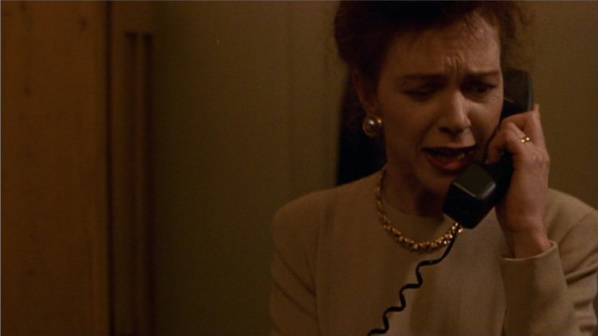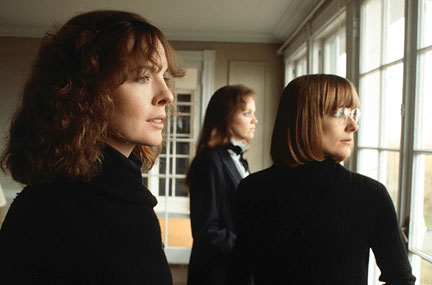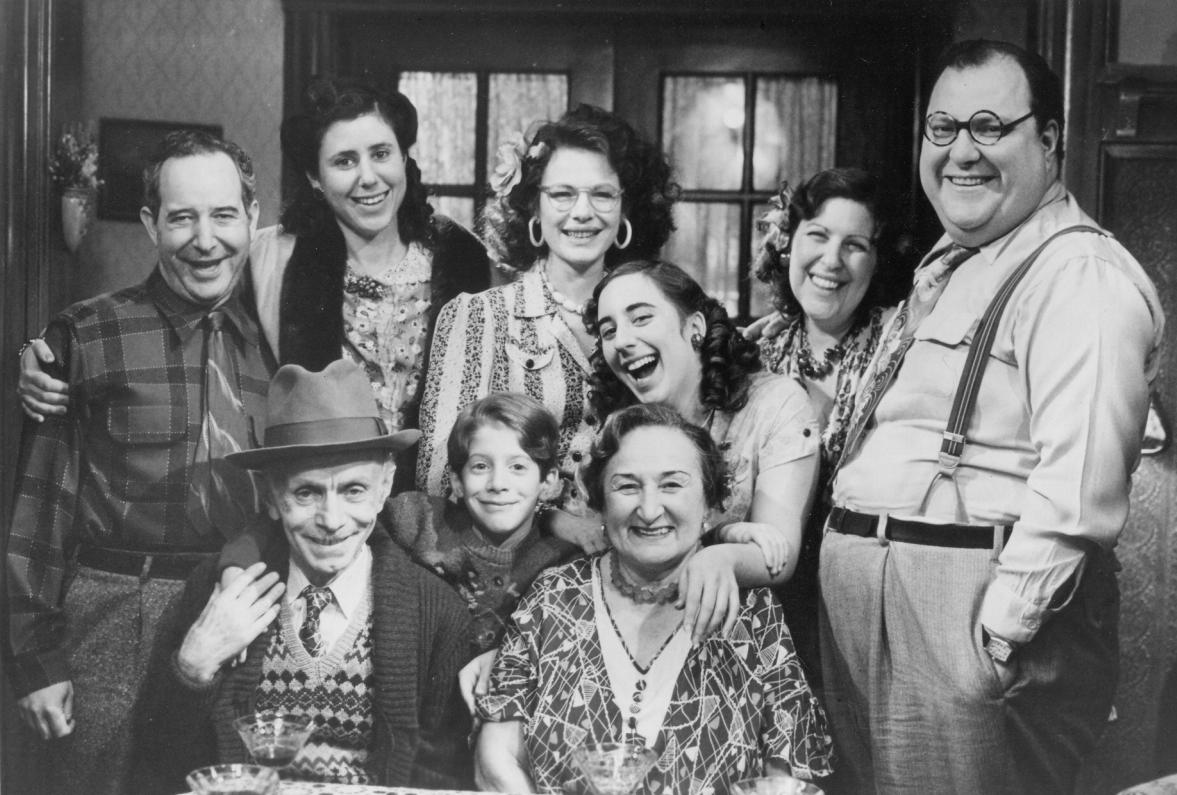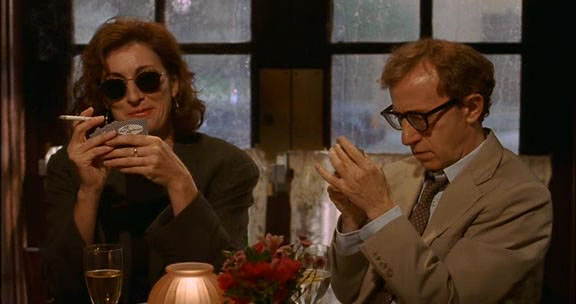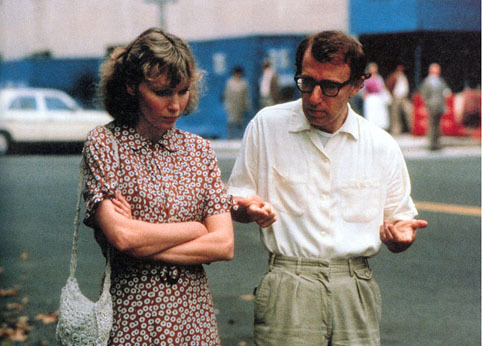 FILM
FILM In Which We Are All Merely Objects
 Tuesday, July 7, 2009 at 8:33PM
Tuesday, July 7, 2009 at 8:33PM 
Our Friends And/Or Neighbors
by ALEX CARNEVALE
Neil LaBute can be convicted of most crimes. He's a satirist without a sense of judiciousness, he's terrible with stereotypes, he's made the ninth worst Nicolas Cage movie ever (The Wicker Man) and he also became a Mormon. His films are intentionally provocative; so was Oleanna and it's still a hell of a night at the theatre. But he made the best film of the 1990s, so he gets a pass from me.

Any man can be redeemed from an eternity of questionable artistic decisions with a masterpiece. Because LaBute wrote and directed Your Friends and Neighbors, therefore he can sit at my dinner table. He can partake of my food, and penetrate my v. His ugly goatee and Brigham Young education are no barrier to my call.

Your Friends and Neighbors begins with an innocent meeting of old friends; two couples, Amy Brenneman and Aaron Eckhart, Ben Stiller and Catherine Keener. In a quiet moment before he and his wife leave, Ben makes a (goateed) pass at Amy. He makes her write her number in a book, and kisses her hand. It is sort of childish, but everything about a blind pass is so.

Eckhart's wife has reason to worry. Her husband can't generate a big, fat boner for her. We understand her deep pain. Isn't that the greatest nightmare? To bed down for good with a soft load that won't eject?

Naturally she's wistful for what a goatee would feel like down there. And Stiller's character is an artist — anyone who would date an artist is either a lesbian or a fool, but she is the latter and she wants his artistic ways inside of her. It turns out the girl he goes with, Catherine Keener is a lesbian, or at least bi like Oprah. She is sweet, cold and cutting, like a crisp glass of lemonade.

For example: Eckhart makes his wife a gift of an antique watch that doesn't keep time. A sort of bracelet. Ben says, "Why would you go around wearing a watch that keeps no time?" His paramour, the lovely Keener, says, "Why else would you if it wasn't on purpose?" She understands the gift. Lesbians love presents.

Later, Eckhart is telling us how 'no one can make me come like I make me come.' Love of masturbation: it's an affliction. It nearly cost us the Louisiana Purchase, or so I'm told.

Eckhart's good friend is the pure, guiltless embodiment of his onanistic shame. Jason Patric plays him, in the finest role of his career. Patric is a medical doctor, and as we all secretly believe of all docs, he's a fink. He's a shithead with a larcenous tongue who favors women the way Cesar Millan favors a cat.
For shits and giggles he up and uses another doc's letterhead to inform a salicious ex that she was on some poor patient's lists of partners who might have, probably did, contract AIDS. So there is a male spectrum of behavior, yet it all boils down to what LaBute really believes of men — that they are still homo sapien, still running around in circles like Neanderthals, full of deceit with no good reason for it.

And what of the women? LaBute is accused of misogyny, and that critique is sometimes just, but surely not in the drama of his electric debut, In the Company of Men. It is the greatest anti-male film of all time, and it seems to be practically a true story. That film was about two enterprising blokes who wished to dually seduce a lovely deaf girl — and then dump her hard, for funsies. How anyone could take offense at such a scheme is beyond me...when you hear about a film in which a murder takes place, do you cry for that victim? LaBute is interested in killing more than people, he prefers to murder ideas: the more sacrosanct, the better. Ideas and Nic Cage's career.

But in LaBute, are women simply objects? He makes Keener's love interest (Nastassja Kinski) a slender artist's assistant, the most beautiful thing in three states. They stare longingly at what's on the wall. So your greatest hopes, fears — Neil is intent on making a joke of them. He has static people crying out to one another. He's saying, They need not cry. We can see their sadness in their faces, like a close shave, or protruding zit.

A modest housewife with an impotent husband, Brenneman is willowly, unsure, weak. She is uncertain of what she wants other than hard penis, which isn't an outlandish request. All the men she's with in the film ask "Is it me?" when they can't produce a throbbing member. She can't make them solid. She's herself a ghost, only good for passing through. This is when LaBute is at his meanest — when he believes he's being merciful.
The most famous scene in Your Friends & Neighbors occurs in the muddy heat of a sauna, where the three men exchange stories of best fucks. Humans always remember the best of something, it's usually the only reason for optimism and continued good cheer. In mindsplitting detail Jason Patric (he of Speed 2: When Sandra Bullock Didn't Resemble The Grinch Who Stole Christmas) recalls his finest sex:
We cannot feel for a monster, or the Victor Frankensteins who brought him to life. So what is left for the audience to surrender to? We are amazed, or delighted, or disgusted, or equal parts of each. Then we come to it, just as suddenly, as though the answer comes drifting in out of the steam. We made this thing, so it is ours to answer for.
Alex Carnevale is the editor of This Recording. He tumbls here.

"Marbrider" - One Hundred Dollars (mp3)
"Someday Soon" - One Hundred Dollars (mp3) highly recommended
"No Great Leap" - One Hundred Dollars (mp3)
One Hundred Dollars myspace

 alex carnevale,
alex carnevale,  neil labute
neil labute 


































